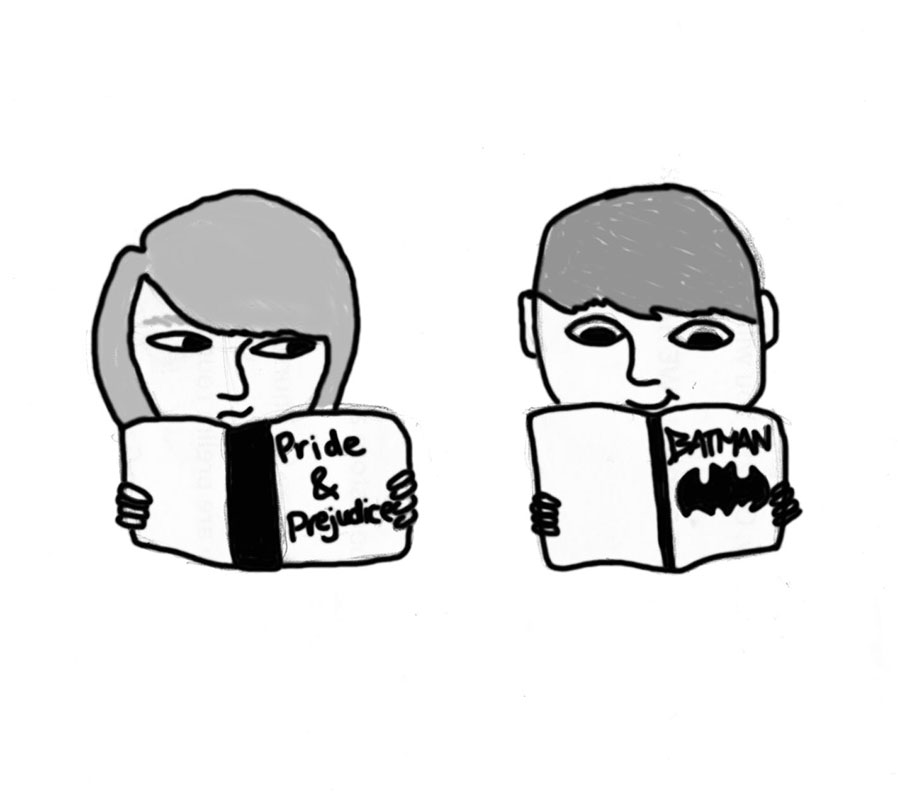When one drops a name like J.K. Rowling, Ernest Hemingway or Jane Austen, readers lend their ears and listen. Many, however, are probably either unfamiliar or only scarcely acquainted with names like Alan Moore, J. Michael Straczynski or Frank Miller; such authors are involved in the world of graphic novels and comics.
Though sometimes dismissed as childish or unimaginative—or in extreme cases, stereotyped as “nerdy”—comic books and graphic novels deserve more recognition and respect.
It is natural to think of the likes of Spider-Man, Superman, Batman and the Avengers when one mentions the word “comics.” As a result, comics are assumed to trade complexity for very simplistic concepts.
The reality is that the medium can do so much more than telling generic stories about caped crusaders and do-gooders in tights. Maus by Art Spiegelman, for example, is a Pulitzer Prize-winning graphic novel which recounts an elderly Jew’s experiences before, during and after the Second World War. It was the first and only graphic novel to win this prestigious award.
Even some superhero books are far from elementary, such as Alan Moore’s Watchmen, which was the only graphic novel on Time Magazine’s 2005 Top 100 Novels List and Frank Miller’s The Dark Knight Returns, a critically acclaimed work that took a fresh spin on the famous DC Comics hero Batman. Both graphic novels explore political, social and philosophical themes—something that those who criticize comics may not realize.
“Comics can certainly be as complex as purely written texts, and comics can address a wide array of subjects,” AP English Language and Composition teacher Robert Boerth said.
Boerth’s classes spend time learning about comics and graphic novels.
There are many aspects that make comic books truly special. For example, one should address the structure of each page, recognizing that panels, word bubbles and such aren’t just placed around for fun.
“Just one example is the imaginative work that has to take place to fill in the gutter—that white space which exists between panels. It is fair to say that significant parts of a comic’s narrative take place in that empty space,” Boerth said.
Comics are film, literature and art all rolled into one.
The art direction, text and arrangement of panels on each page of a comic or graphic novel work in tandem with one another to give meaning to a story.
Each of these distinguishing characteristics help comics and graphic novels stand out in the large sea of modern literature and challenge people to read and interpret material in a different light.
7th grade English teacher Jeff Wilson, whose classes also learn about comic books, said, “Comic book creators can utilize the benefits of exposition in their textual storytelling and artistic design in their graphic storytelling. [They] can tell [stories] in ways that neither books nor cinema can do on their own.”
Although the study of comics is limited to two courses—AP English Language and Composition and English 7—other English classes on campus could easily be complemented by a unit about comics.
The addition would ensure that English students are exposed to all forms of literature, not just the works of Dickens, Lovecraft and so on.
“The stories lend themselves to English to be sure, but comics can be of use in making complex concepts in science, math and history more easily relatable, too,” Wilson said.
It’s no secret that comics have in recent years become more popular.
Conventions like the annual San Diego Comic Con International have long been a reminder of comics’ prevalence in modern culture, and comic book-based films like The Avengers, The Dark Knight Rises and the recent Guardians of the Galaxy have yielded large box office grosses.
Hopefully, more readers of all ages can learn to appreciate comics and graphic novels, and learn to love the ink.
Breaking News
- April 22April 25th- History Bowl and Bee National Competition
- April 22April 24th- Orchestra Concert
- April 22April 23rd- US Assembly/Community Service Awards
- April 22April 22nd- Fine Arts Hall of Fame Induction




